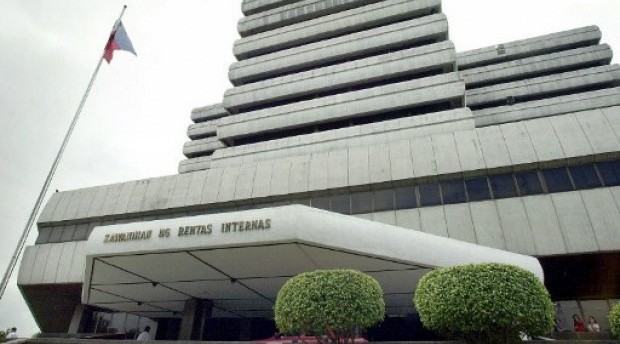
The head office of the Bureau of Internal Revenue in Quezon City. File photo from AFP
MANILA, Philippines — The recent Bureau of Internal Revenue (BIR) memorandum is not limited to “social media influencers,” a tax expert said in a forum on Thursday.
This came in a forum organized by the Creator and Influencer Council of the Philippines, tackling the recently introduced Revenue Memorandum Circular (RMC) No. 97-2021, which reminded “influencers” of their tax obligations amid the popularity of social media platforms like Facebook, Instagram, TikTok, Twitter and YouTube, among others, in promoting products and services.
“This is not just for the online influencers or gamers. In fact, with all the issues now in congress, we have to be more critical of the corrupt politicians and illegal businessmen,” said Mon Abrea, a certified public accountant (CPA) and chairman of the Asian Consulting Group.
Meanwhile, CPA and lawyer Daniel Leaño said that the recently introduced tax memorandum boils down to one simple rule. “You earn, you pay tax.”
“It applies to anyone, so basically kung meron kang income kung meron kang earnings, most likely meron kang babayaran na tax [if you have income, then most likely you have taxes you need to pay for],” said Leaño.
Leaño, however, reminded that there is due process in catching delinquent taxpayers.
According to Leaño, there are three phases for the BIR to catch someone who’s not paying taxes: Pre-Assessment or Investigation, Audit and Assessment process and the collection process.
He explained that there are multiple ways for BIR to investigate a specific influencer. The BIR could profile a certain personality by checking their registrable properties like houses, condos, cars.
Social media posts can also be used as an indicator of wealth that can be used by BIR for the investigations.
Another, which recently generated buzz on social media, is the use of informers, where successful informants will be given a reward of P1 million pesos if they successfully provide proof of personalities avoiding tax.
Abrea and Leaño, however, reminded the public that it’s not as simple as “tag me and you get P1 million.”
According to Abrea, an informant must first make a physical appearance before the BIR’s prosecution office to make a sworn declaration or affidavit that they have a confidential information.
He cited corrupt politicians with properties not declared in their SALNs as an example.
“Kahit picturan mo lang ‘yon if that will lead to an investigation and collection jackpot ka. Meron kang maximum na 1 million pero you have to go through the process,” Abrea said.
(Even if you only have a photo that will lead to an investigation and collection, then jackpot. You have a maximum of 1 million but you have to go through the process.)
Informants cannot be BIR employees or formerly with the BIR, they also cannot be relatives of such.
Once the BIR obtains the confidential proof, the agency will then take care of the investigation.
“Once makolekta (once collected) that’s the only time ‘you’ll get the 10 percent of the actual collection including penalties or 1 million whichever is lower,” said Ablea.
“Pero may (however there is a) 10 percent withholding tax,” he added.
If the BIR finds discrepancies, a suspected delinquent taxpayer may still have the option to issue an administrative appeal to the Commissioner of Internal Revenue or a judicial appeal to the Court of Tax Appeal.
But if assessment has been finalized after protest and no payments have been voluntarily made by the taxpayer, the BIR has multiple tools to enforce collection, this includes a fine slapped on those convicted of tax evasion from P500,000 to P10 million.
Imprisonment will range between six and 10 years, longer than the previous sentence of two to four years.
RELATED STORY:
Influencers ‘happy to dialogue’ with BIR over tax dues